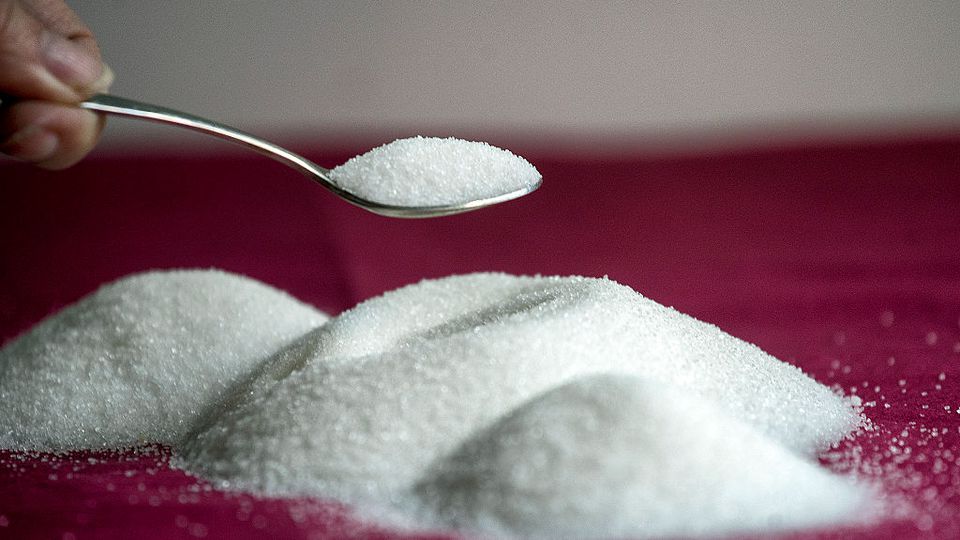-
Tips for becoming a good boxer - November 6, 2020
-
7 expert tips for making your hens night a memorable one - November 6, 2020
-
5 reasons to host your Christmas party on a cruise boat - November 6, 2020
-
What to do when you’re charged with a crime - November 6, 2020
-
Should you get one or multiple dogs? Here’s all you need to know - November 3, 2020
-
A Guide: How to Build Your Very Own Magic Mirror - February 14, 2019
-
Our Top Inspirational Baseball Stars - November 24, 2018
-
Five Tech Tools That Will Help You Turn Your Blog into a Business - November 24, 2018
-
How to Indulge on Vacation without Expanding Your Waist - November 9, 2018
-
5 Strategies for Businesses to Appeal to Today’s Increasingly Mobile-Crazed Customers - November 9, 2018
Sugar Companies Shifted Focus to Fat as Heart Harm
“The amount of money they were paid to do this is staggering”. Even as public health advocates are crying out against sweet beverages, it is disclosed that American Beverage Association spent $10 million to defeat attempts to pass soda taxes. Kearns and her colleagues followed a paper trail of historical documents from large checks written by players in the sugar industry to a research review that downplayed the link between sugar and heart disease.
Advertisement
And now, we have government-approved low-fat, high-sguar diets that have contributed to the obesity epidemic to thank them for, the report states.
That lobby group, now called the Sugar Association, said in a statement yesterday that it’s “challenging for us to comment on events that allegedly occurred 60 years ago, and on documents we have never seen”, and believes it’s a “disservice” that anyone would allow tricks like the one carried out by its precursor to “brand” or “taint” industry-funded research in the future.
A report in the Journal of the American Medical Association Internal Medicine reviewed a case from the 1960s when three Harvard researchers were paid by a sugar industry group to do research looking at heart disease and sugar consumption.
“It was a very smart thing the sugar industry did, because review papers, especially if you get them published in a very prominent journal, tend to shape the overall scientific discussion”, co-author Stanton Glantz said. The documents included correspondence between the SRF and a Harvard University professor of nutrition who was codirector of the SRF’s first coronary heart disease research program in the 1960s.
Monday’s report cites the industry continued to fund research that sidestepped sugar’s effects on health, including a 1970s review influencing the 1976 US Food and Drug Administration evaluation of the safety of sugar.
But even though the influence-peddling revealed in the documents dates back almost 50 years, the revelations are important because the debate about the relative harms of sugar and saturated fat continues today, Glantz said.
These include complete transparency of all sources of funding and publishing all research – regardless of results – in independent peer-reviewed journals.
In response to the new report, the Sugar Association said in a statement that conflict-of-interest policies were less stringent and researchers weren’t required to make financial disclosures back then. “Scientific studies support the work of industry and help industry reformulate its products and offer alternatives to consumers”, said Ranson. The food industry has and continues to influence nutrition “knowledge” because federal agencies encourage it.
In a new study by scientists from the Institute for Health Policy Studies and the University of California, San Francisco, the internal sugar industry documents suggest that the results of five decades of studies have been greatly shaped by the sugar industry. One of these scientists, the late D. Mark Hegsted, went on to become a major driver of US dietary advice. “Yet, health policy documents are still inconsistent in citing heart disease risk as a health outcome of added sugars consumption”.
Advertisement
The project wound up taking longer than expected, because more and more studies were being released that suggested sugar might be linked to coronary heart disease.




























